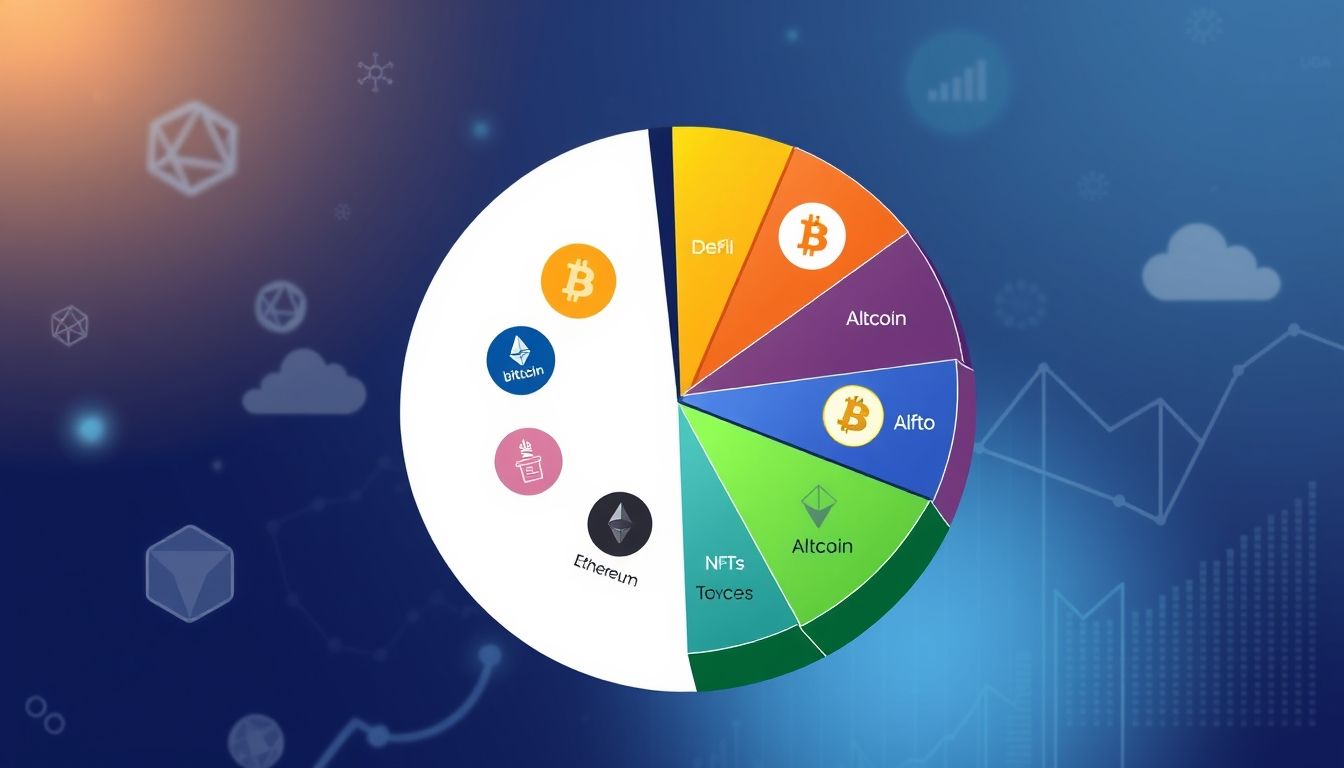العملات الرقمية والذهب الرقمي: تحوط ضد التضخم أم فقاعة استثمارية؟
في عالم يشهد تقلبات اقتصادية متزايدة وارتفاعاً في معدلات التضخم، يبحث المستثمرون عن بدائل آمنة للاستثمارات التقليدية. برزت العملات الرقمية والذهب الرقمي كخيارات واعدة، لكنها تثير أيضاً جدلاً واسعاً حول مدى فعاليتها كأدوات تحوط ومخاطرها المحتملة.
الفصل الأول: التضخم وتأثيره على الاستثمارات التقليدية
التضخم هو الارتفاع المستمر في المستوى العام للأسعار للسلع والخدمات في اقتصاد ما، مما يقلل من القوة الشرائية للنقود. يؤثر التضخم بشكل مباشر على الاستثمارات التقليدية مثل:
- السندات: يمكن أن تتآكل قيمة السندات ذات العائد الثابت بسبب التضخم.
- الأسهم: قد تتأثر أرباح الشركات سلباً بارتفاع تكاليف الإنتاج والمواد الخام.
- النقد: تفقد الأموال النقدية قيمتها بمرور الوقت بسبب انخفاض القدرة الشرائية.
مثال: إذا كان لديك 1000 دولار في حساب توفير بفائدة 1% سنوياً، وكان معدل التضخم 3%، فإن القوة الشرائية لأموالك ستنخفض فعلياً بنسبة 2% سنوياً.
الفصل الثاني: العملات الرقمية: نظرة عامة
العملات الرقمية هي أصول رقمية أو افتراضية تستخدم علم التشفير لتأمين المعاملات والتحكم في إنشاء وحدات جديدة. أشهرها:
- بيتكوين (Bitcoin): أول وأشهر عملة رقمية، تعتبر "الذهب الرقمي".
- إيثيريوم (Ethereum): منصة بلوك تشين تدعم تطبيقات لا مركزية وعقود ذكية.
- العملات المستقرة (Stablecoins): عملات رقمية مرتبطة بأصول مستقرة مثل الدولار الأمريكي.
إحصائية: ارتفعت القيمة السوقية الإجمالية للعملات الرقمية من أقل من 200 مليار دولار في بداية عام 2020 إلى أكثر من 2 تريليون دولار في نهاية عام 2021، ثم شهدت تقلبات كبيرة بعد ذلك.
الفصل الثالث: الذهب الرقمي: مفهومه وخصائصه
الذهب الرقمي هو مصطلح يستخدم غالباً لوصف بيتكوين، نظراً لخصائصه المشابهة للذهب، مثل:
- محدودية العرض: يوجد حد أقصى لعدد عملات بيتكوين التي يمكن تعدينها (21 مليون عملة).
- الندرة: صعوبة الحصول عليه تزيد قيمته.
- اللامركزية: لا يخضع لسيطرة أي حكومة أو مؤسسة مالية.
ملاحظة: مصطلح "الذهب الرقمي" مثير للجدل، حيث يرى البعض أن تقلبات بيتكوين تجعله غير مناسب للتحوط ضد التضخم.
الفصل الرابع: العملات الرقمية كتحوط ضد التضخم: الحجج المؤيدة
يدعم البعض فكرة أن العملات الرقمية، وخاصة بيتكوين، يمكن أن تكون تحوطاً فعالاً ضد التضخم للأسباب التالية:
- محدودية العرض: على عكس العملات الورقية التي يمكن للحكومات طباعتها بكميات كبيرة، فإن العرض المحدود لبيتكوين يجعله مقاوماً للتضخم.
- اللامركزية: لا تخضع العملات الرقمية لسياسات البنوك المركزية التي قد تؤدي إلى التضخم.
- الطلب العالمي: الطلب المتزايد على العملات الرقمية يمكن أن يدعم قيمتها في مواجهة التضخم.
مثال: خلال فترات التضخم المرتفع في دول مثل فنزويلا والأرجنتين، لجأ بعض المواطنين إلى بيتكوين للحفاظ على قيمة مدخراتهم.
الفصل الخامس: العملات الرقمية كتحوط ضد التضخم: المخاطر والتحديات
على الرغم من الحجج المؤيدة، تواجه العملات الرقمية العديد من المخاطر والتحديات كأداة تحوط ضد التضخم:
- التقلبات الشديدة: تشتهر العملات الرقمية بتقلباتها السعرية الكبيرة، مما يجعلها استثماراً محفوفاً بالمخاطر.
- التنظيم غير المؤكد: لا تزال القوانين واللوائح المتعلقة بالعملات الرقمية غير واضحة في العديد من البلدان.
- الأمن السيبراني: تتعرض منصات تداول العملات الرقمية والمحافظ الرقمية لهجمات القرصنة والاختراقات.
تحذير: يجب على المستثمرين أن يكونوا على دراية بالمخاطر المحتملة قبل الاستثمار في العملات الرقمية، وأن يستثمروا فقط ما يمكنهم تحمل خسارته.
الفصل السادس: الذهب الرقمي مقابل الذهب التقليدي
يقارن البعض بين بيتكوين والذهب التقليدي كأصول آمنة. إليك بعض الاختلافات الرئيسية:
| الخاصية | الذهب التقليدي | الذهب الرقمي (بيتكوين) |
|---|---|---|
| السيولة | عالية | عالية |
| التقلب | منخفض | مرتفع |
| إمكانية الوصول | سهلة نسبياً | سهلة عبر الإنترنت |
| التخزين | مكلفة (تأمين ونقل) | رخيصة (محفظة رقمية) |
تحليل: يعتبر الذهب التقليدي ملاذاً آمناً أكثر استقراراً من بيتكوين، لكن بيتكوين يوفر سهولة أكبر في التخزين والنقل.
الفصل السابع: أمثلة عملية من السوق العربي
في بعض الدول العربية التي تعاني من تضخم مرتفع أو قيود على تحويل العملات، لجأ بعض الأفراد والشركات إلى العملات الرقمية لتسهيل المعاملات التجارية وحماية قيمة أموالهم. على سبيل المثال:
- في لبنان، حيث يواجه اللبنانيون قيوداً صارمة على سحب الدولار الأمريكي من البنوك، يستخدم البعض بيتكوين لتحويل الأموال إلى الخارج.
- في مصر، حيث يتآكل الجنيه المصري بسبب التضخم، يستثمر البعض في العملات الرقمية كبديل للاستثمار في العقارات أو الذهب.
ملاحظة: استخدام العملات الرقمية في الدول العربية لا يزال محدوداً بسبب القيود التنظيمية والمخاوف الأمنية.
الفصل الثامن: نصائح للمستثمرين في العملات الرقمية
إذا كنت تفكر في الاستثمار في العملات الرقمية، إليك بعض النصائح:
- قم بأبحاثك: قبل الاستثمار في أي عملة رقمية، تأكد من فهمك لتقنيتها واستخداماتها ومخاطرها.
- استثمر بحذر: لا تستثمر أكثر مما يمكنك تحمل خسارته.
- نوع محفظتك الاستثمارية: لا تضع كل أموالك في العملات الرقمية.
- استخدم محافظ آمنة: قم بتخزين عملاتك الرقمية في محافظ آمنة لحمايتها من القرصنة.
- ابق على اطلاع: تابع الأخبار والتطورات في عالم العملات الرقمية.
الفصل التاسع: مستقبل العملات الرقمية والذهب الرقمي
لا يزال مستقبل العملات الرقمية والذهب الرقمي غير مؤكد، لكن هناك بعض الاتجاهات المحتملة:
- زيادة التنظيم: من المتوقع أن تزيد الحكومات والبنوك المركزية من تنظيمها للعملات الرقمية.
- اعتماد مؤسسي: قد تزيد المؤسسات المالية الكبرى من استثماراتها في العملات الرقمية.
- تطوير تقنيات البلوك تشين: من المتوقع أن تستمر تقنيات البلوك تشين في التطور، مما قد يؤدي إلى ظهور تطبيقات جديدة للعملات الرقمية.
توقع: قد تصبح العملات الرقمية جزءاً لا يتجزأ من النظام المالي العالمي في المستقبل، لكنها ستظل تخضع للتقلبات والمخاطر.
الفصل العاشر: الخلاصة والتوصيات
العملات الرقمية والذهب الرقمي يمكن أن يكونا بدائل جذابة للاستثمارات التقليدية في ظل التضخم المتزايد، لكنهما ليسا حلاً سحرياً. يجب على المستثمرين أن يكونوا على دراية بالمخاطر المحتملة وأن يستثمروا بحذر. من الضروري إجراء البحوث اللازمة وتنويع المحفظة الاستثمارية واستشارة الخبراء الماليين قبل اتخاذ أي قرار استثماري.
إخلاء المسؤولية: هذه المقالة هي لأغراض إعلامية فقط ولا تشكل نصيحة استثمارية. يجب عليك استشارة مستشار مالي مؤهل قبل اتخاذ أي قرارات استثمارية.




